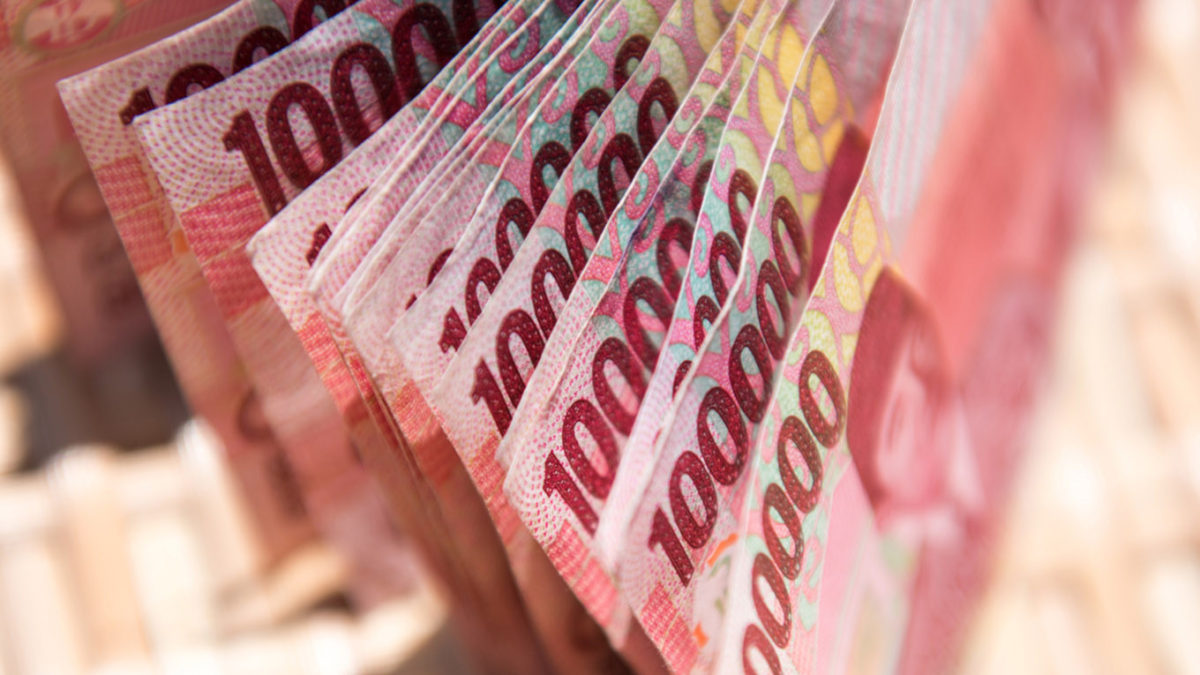Indonesia is still among the preferred Southeast Asian markets for investment amid the country’s continuous fight against COVID-19, backed by strong household spending and a young working population, Singapore’s largest bank, DBS, has stated.
In a report titled “CIO Insights 3Q20” released on Monday, DBS noted that the country would quickly return to normalcy after the relaxation of the pandemic-related restrictions, while household spending – which contributes more than half of its gross domestic product (GDP) – will continue to drive the recovery.
“The investment strength in Indonesia lies in its favourable demographics. Indonesia is the third-most populous country in Asia, the fourth globally, and has a high proportion of young working adults,” the report reads.
The Indonesian market, along with regional neighbour Singapore, trade at around 13 times forward price to earnings and are deemed to be the cheapest markets in ASEAN, leaving room for earning adjustments, the report stated.
Meanwhile, with the government’s fiscal stimulus and monetary easing support, together with Indonesia’s structural demographic strength, DBS expects the economic woe from the pandemic to be over by the second quarter of this year.
With the pandemic impact on the economy, Finance Minister Sri Mulyani Indrawati has projected that the economy will contract by more than 3 percent year-on-year in the second quarter, after growth slowed to 2.97 percent in the first quarter. She expects full-year growth of 1 percent under the baseline scenario but a full-year contraction of 0.4 percent under the worst-case scenario.
Meanwhile, the Indonesian government has allocated Rp 695.2 trillion (US$ 49.3 billion) worth of COVID-19 spending to boost economic growth and strengthen its healthcare system amid the pandemic. From the total, around Rp 110 trillion of the stimulus has been allocated for social safety programs for the poor and vulnerable.
DBS stated in the report that the stimulus was expected to drive consumer spending in Indonesia during the COVID-19 pandemic, as the country’s consumption was largely driven by the low-middle income segment.
Meanwhile, DBS chief investment officer Hou Wey Fook said e-commerce would become a key trend in the post-pandemic economy.
“[In] the longer term, the theme of a young population, growing economy and a population enjoying digital tools is actually very positive for Indonesia,” Fook said during a webinar on the market outlook on Monday following the publication of the DBS report.
The DBS report says Indonesia is fast becoming the region’s biggest e-commerce market, supported by private equity funds investing in digital start-ups as well as President Joko “Jokowi” Widodo’s push for a digital economy.
According to a study by Google, Temasek and Bain & Company titled e-Conomy SEA 2019, which DBS cited, Indonesia’s internet economy is expected to skyrocket at a compound annual growth rate (CAGR) of 32 percent between 2015 and 2025.
Between 2015 and 2019 alone, the Indonesian e-commerce sector grew at a CAGR of 88 percent with a gross merchandise value (GMV) of US$21 billion.
Consequently, DBS predicts that the sectors that will come out as post-pandemic winners are within the equity themes of health care and technology.
During the webinar, Fook suggested investors stick with a barbell strategy, an investment strategy that includes the extremes of high risk and no-risk assets, as it had shown resilience during the meltdown and a rebound in the upturn.
He added that staying engaged in risk assets, including equity, had resulted in swift rebound due to the unprecedented economic stimulus rolled out by the Fed.
The Jakarta Composite Index (JCI), Indonesia Stock Exchange’s main gauge, which has gained 20 percent from March’s bottom, is currently taking a breather, the report notes. JCI fell by 22.19 percent year-to-date (YTD) as of Monday.
“We expect more upside for the index for it to recover to pre-crisis levels,” the report reads.
Previously, Hariyanto Wijaya, head of research at Mirae Asset Sekuritas Indonesia, the country’s most active brokerage house, reminded investors to keep their losses small when investing during volatile times.
“Please set your cut loss limit quite reasonably, we suggest around 20 percent,” Hariyanto said during a webinar held by The Jakarta Post on June 17. “If investors already get sufficient gains, I suggest taking a profit.”

